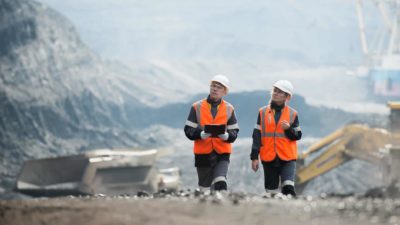BHP Group Ltd (ASX: BHP) is getting the band back together! Well, sort of. At present, BHP is a dual-listed company. It's Australia's biggest mining company and one of the largest in the world. BHP has extensive iron ore operations, as well as interests in copper, coal and oil.
Ever since its merger with Billiton plc two decades ago, investors have had the option of buying the original ASX-listed BHP shares here in Australia. Or else BHP Group plc (LON: BHP) shares that are listed directly on the London Stock Exchange (LSX) in the United Kingdom. Other investors from South Africa and the United States also have the option of secondary shares. For example, the New York Stock Exchange's BHP ADR (American Depository Receipt) listings.
The Big Australian comes home
But back in August, the 'Big Australian' announced that it would be going back to its roots. It confirmed that it will scrap its London dual listing. Here's what BHP's management had to say on why the company is pursuing 'unification':
We have regularly sought to streamline and improve our corporate and governance processes. Unification would further simplify the BHP corporate structure and shareholder registers, reduce duplication and streamline our governance and internal processes.
Unification will enable one market capitalisation and one global pool of liquidity, with the same share trading via the Group's listings on the Australian, London and Johannesburg stock exchanges and its NYSE listed ADR program.
So what does this mean for investors?
What happens to BHP shares after unification?
Well, for any British investors, the consequences are more apparent. With the delisting, BHP will be removed from London's share market, and by extension, form the UK's flagship FTSE 100 Index. But, as BHP clarified above, British investors will still be able to own BHP shares on the LSX via a secondary listing. That's similar to what already exists for American investors. They will also be given the option of receiving 1 ASX BHP share for every LSX BHP share owned.
For ASX investors, it means a whole lot of not much. There will simply be more shares available on the ASX to compensate for the lack of primary shares on the LSX. But, all other things remaining equal, BHP's market capitalisation (a.k.a. share price) will not change. Nor will its dividends, earnings or any other fundamental trait of its business. BHP has told investors that "If approved, unification is expected to occur in the first half of the 2022 calendar year".
So pencil that into your 2022 investing calendar!






